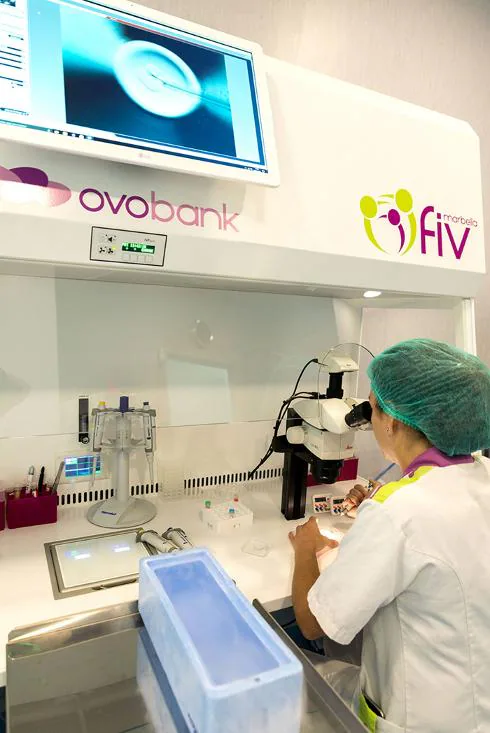

Sections
Highlight

SUR
Thursday, 9 November 2017, 19:34
Compartir
In the year 2015 in Spain, 7.4 per cent of women who gave birth were over the age of 40. Many of these babies were born as the result of ovule donation treatments or the reception of donated oocytes. The fundamental part of this process is the existence of ovule donors. As Spain is, after Italy, the European country in which motherhood is postponed the longest (and it is a trend which shows no signs of changing at present), their role is absolutely essential, because when these women decide that they want to become pregnant, on many occasions they are unable to do so naturally.
The ovo-donation treatment is a procedure under which the women are given oocytes from a donor, selected because of certain characteristics (most similar to those of the receiver) and compatible blood group.
Later, these oocytes are inseminated with spermatazoids from the receiver's partner or a semen donor. The resulting embryos are transferred to the woman's uterus to complete the pregnancy process.
These techniques are usually used in cases of early ovarian failure, genetic alterations in the gametes, serious genetic illness, previous failure of reproduction techniques or repeated failures of embryonic implantation.
What we are looking at is the most effective way of achieving pregnancy, according to the Spanish Fertility Society, to which patients turn when other techniques such as artificial insemination or in-vitro fertilisation have proven unsuccessful.
The rigorous selection of donors is one of the reasons this technique is so successful, because it is based on the use of gametes from young women with no reproductive problems, who are therefore biologically very suitable, says Enrique Criado, director of the IVF clinic in Marbella.
Figures released for the year 2015 (the most recent available) show a 45.4 pregnancy rate per cycle initiated and 54.5 per cent via transfer.
Every month, in the ovaries, several ovules start to mature in the menstrual cycle. Only some of them will reach maturity. The donors of oocytes undergo a process of ovarian stimulation so that more mature, and those are then removed in the operating theatre as an outpatient procedure after which the donor is able to go home.
Ovule donation essential
The profile of an ovule donor is a woman aged around 25, with standard or higher education (in many cases already well-informed about the subject), who is in good physical and psychological health. In addition, they undergo numerous and exhaustive diagnostic tests (medical, genetic, psychological...) which they have to pass before being accepted as a suitable donor.
The donation of oocytes is regulated by the Spanish Law of Infertility Treatment 14/2006 and the Royal Decree-law 09/2017 regarding the banking of cells and tissues in quality systems, where the donation is defined as an anonymous, voluntary and altruistic act.
The anonymity of tissue donation is total, because not even the patients will ever know anything about the donor's identity, nor will the donors ever know to whom their oocytes have been given.
The law also specifies the amount of compensation given to donors for the inconvenience the process involves, travelling costs and time off work. This normally ranges from 600 to 1,000 euros.
Publicidad
Publicidad
Publicidad
Publicidad
Reporta un error en esta noticia
Necesitas ser suscriptor para poder votar.